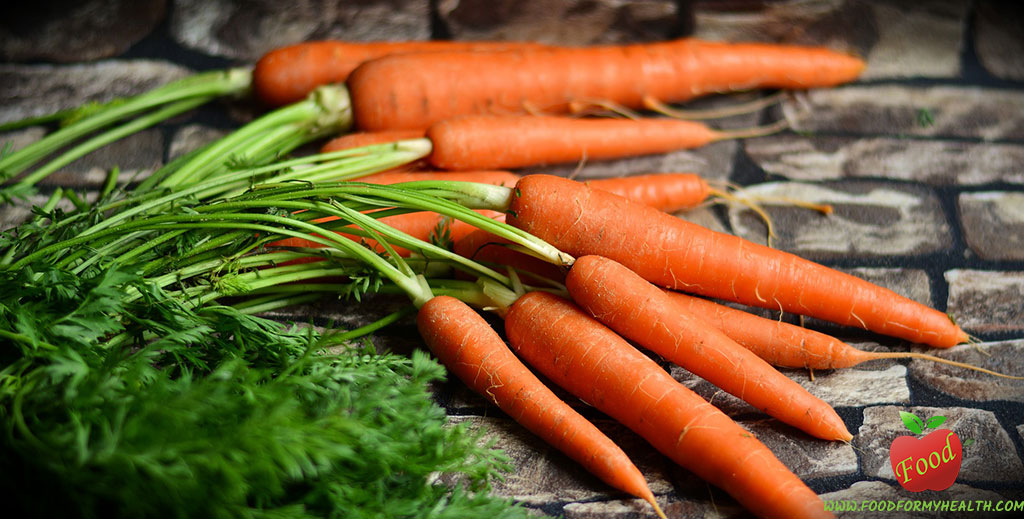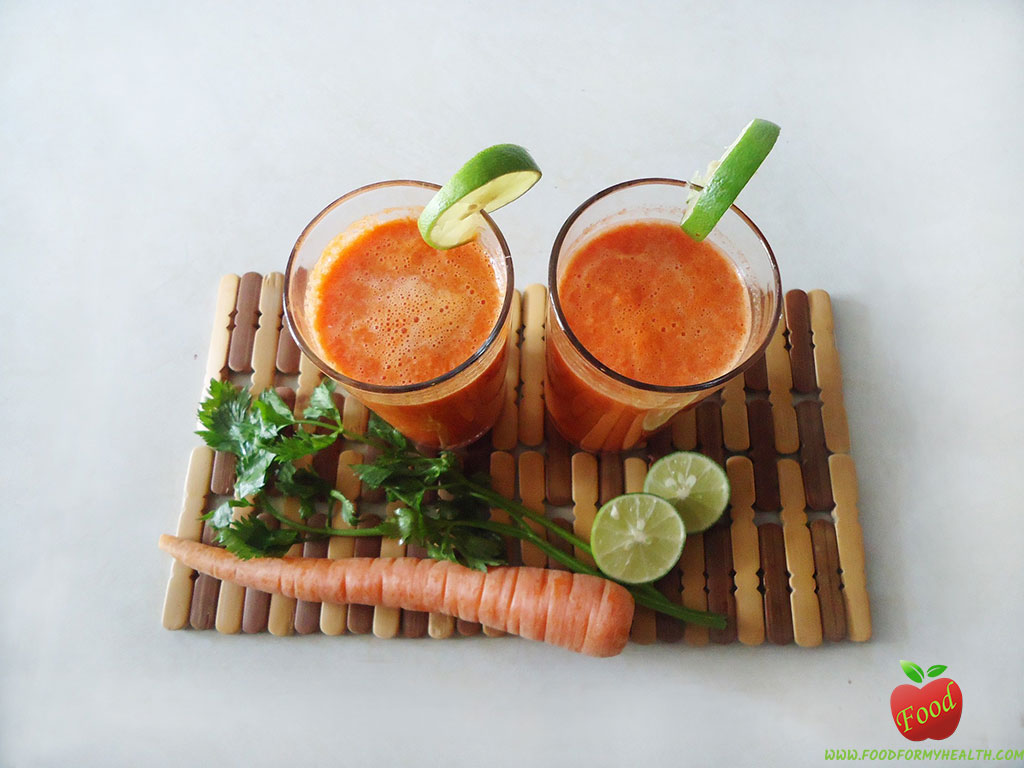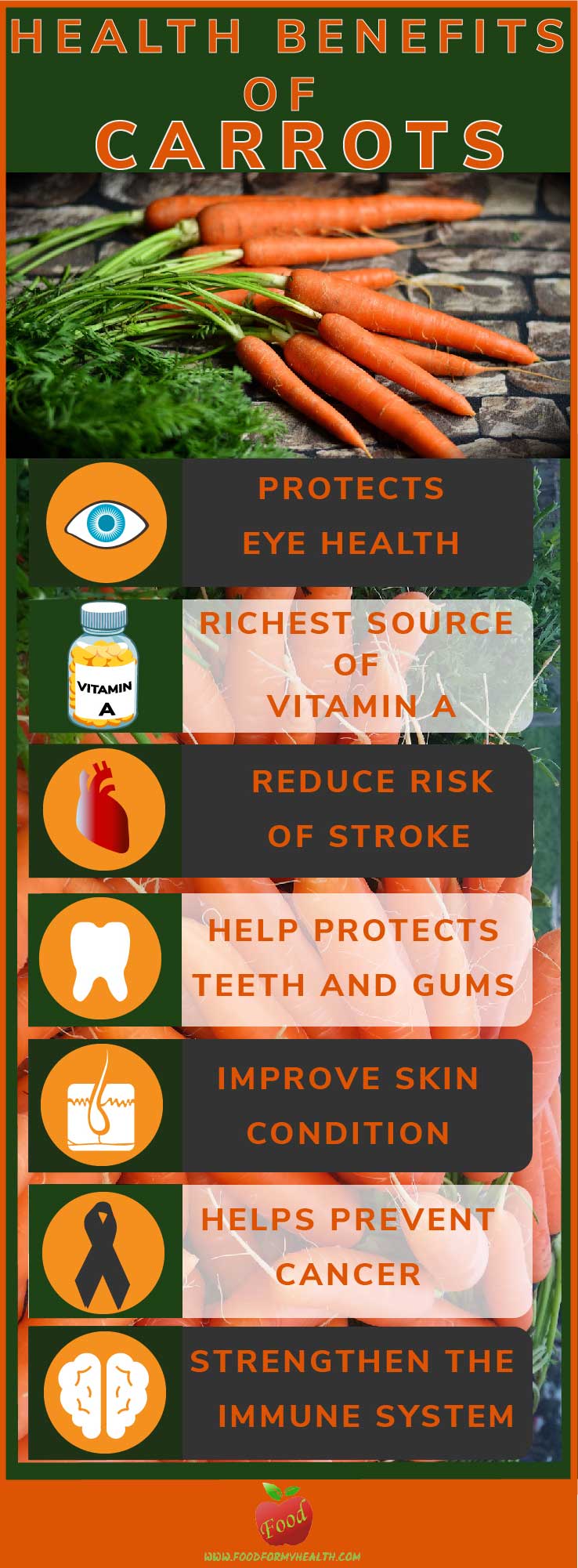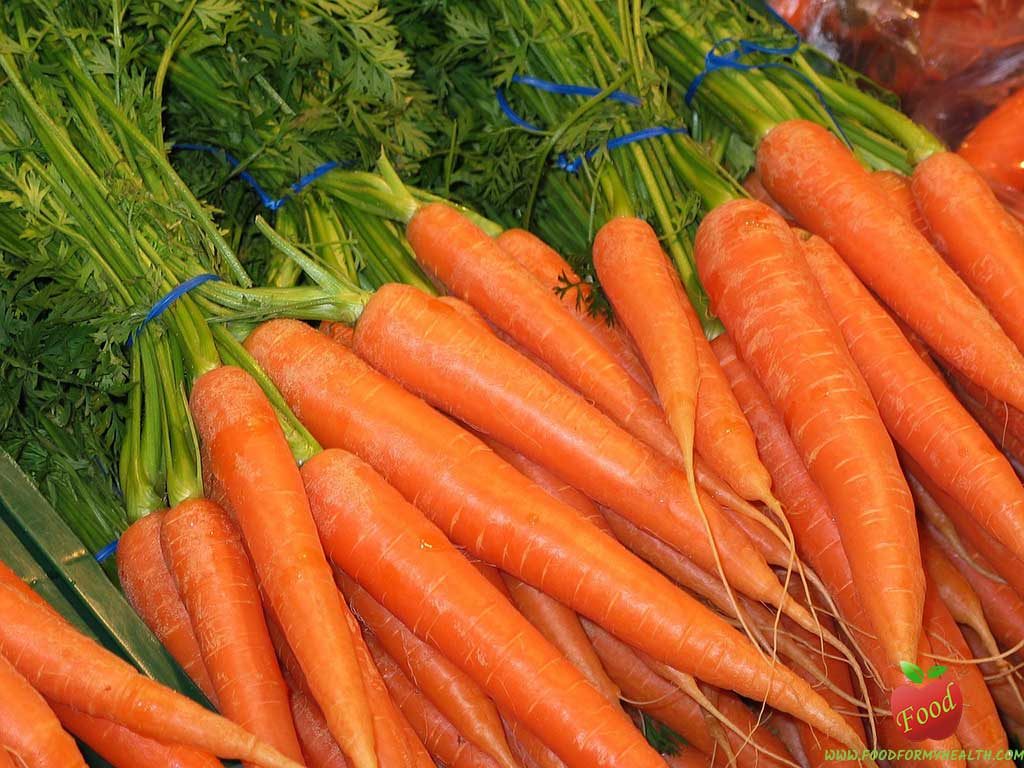Carrot
Carrot is a root of the carrot plant (‘Daucus carota’), an herb of the family Umbelliferae that reaches up to one meter in height. It is usually orange in color although there are varieties purple or yellow It originates from Southern Europe and the Near East. Today it is cultivated in temperate regions throughout the world, primarily China, United States, and France.
One hundred grams of carrots (about one medium sized carrot) provide enough beta-carotene for the body to produce almost three times the vitamin A needed daily by an adult. Lack of vitamin A is manifest by a loss of night vision and dry, irritated eyes.

Carrot nutrition facts and health benefits
Carrots, together with alfalfa greens, are the food richest in provitamin A, which makes them a true dietary medicine. Carrots contain a small but significant amount of proteins (1.03%), approximately half of that of the potato. Fats are almost completely absent (0.19%), and carbohydrates make up 7.14% of their weight. They are a rather good source of B group vitamins, as well as vitamins C and E. All minerals and trace elements are present, including iron (0.5 mg/100 g).
Three substances stand out in the composition of carrots:
Carotenoids are among the most notable of which is beta-carotene, which the body transforms into vitamin A. Carotenoids are essential for the proper functioning of the retina, particularly for night vision or in low light situations. They also help maintain the skin and mucosa in good condition.
Vegetable fiber: Carrots contain about 3%, most of which is in the form of pectin. This helps regulate the transit of stool and soothes the intestinal mucosa.
Essential oil: This is active against intestinal parasites. Carrots are very useful in diseases of the retina and of the eyes in general, skin disorders, gastritis, excess of gastric acid, colitis, and in the prevention of cancer.

Preparation and Use
Raw: In salads, whole or grated and dressed with lemon juice Carrots strengthen children’s teeth.
Cooked: Carrots combine well with potatoes and other vegetables. They are sweeter when cooked. They maintain their beta-carotene content after cooking.
Juice: Carrot juice makes a refreshing, delicious, and nutritious beverage. It combines very well with apple juice or lemon juice.
Pin Us On Pinterest

Energy and nutrition value
Energy and nutrition value are for 100 g.
| Nutrient | Unit | Value per 100 g |
|---|---|---|
| Water | g | 95.23 |
| Energy | kcal | 15 |
| Protein | g | 0.65 |
| Total lipid (fat) | g | 0,11 |
| Carbohydrate, by difference | g | 3.63 |
| Fiber, total dietary | g | 0.5 |
| Sugars, total | g | 1.67 |
| Calcium, Ca | mg | 16 |
| Iron, Fe | mg | 0,28 |
| Magnesium, Mg | mg | 13 |
| Phosphorus, P | mg | 24 |
| Potassium, K | mg | 147 |
| Sodium, Na | mg | 2 |
| Zinc, Zn | mg | 0.20 |
| Vitamin C, total ascorbic acid | mg | 2.8 |
| Thiamin | mg | 0,027 |
| Riboflavin | mg | 0,033 |
| Niacin | mg | 0,098 |
| Vitamin B-6 | mg | 0,040 |
| Folate, DFE | µg | 7 |
| Vitamin B-12 | µg | 0,00 |
| Vitamin A, RAE | µg | 5 |
| Vitamin A, IU | IU | 105 |
| Vitamin E (alpha-tocopherol) | µg | 0.03 |
| Vitamin D (D2 + D3) | mg | 0,00 |
| Vitamin D | IU | 0 |
| Vitamin K (phylloquinone) | µg | 16.4 |
| Fatty acids, total saturated | g | 0,037 |
| Fatty acids, total monounsaturated | g | 0,05 |
| Fatty acids, total polyunsaturated | g | 0,032 |
| Fatty acids, total trans | g | 0,000 |
| Cholesterol | 0 | 0,000 |
| Caffeine | 0 | 0,000 |
*Source National Nutrient Database for Standard Reference Release 28
Related: Root Vegetables Treasury Of Health

